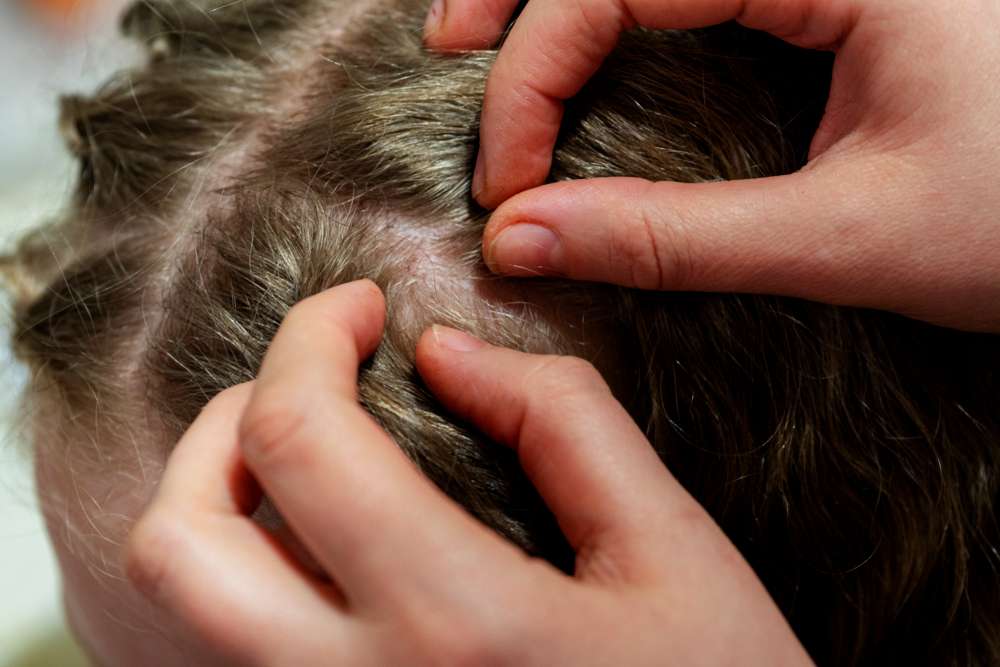Understanding Scalp Psoriasis: What It Is and How to Treat It
Scalp psoriasis is a common skin condition that can cause redness, itching, and flaky patches on the scalp. While it’s not contagious, it can be uncomfortable and affect confidence. Understanding what triggers scalp psoriasis and knowing the best ways to treat and manage it can help reduce flare-ups and improve scalp health.

What Causes Scalp Psoriasis?
Scalp psoriasis develops when skin cells multiply too quickly, creating buildup on the skin’s surface. While researchers haven’t pinpointed the exact trigger, several factors contribute to its development:
-
Genetic predisposition - Family history of psoriasis increases risk
-
Immune system dysfunction - Overactive T-cells attack healthy skin cells
-
Environmental triggers - Cold, dry weather conditions
-
Stress - Emotional stress can trigger initial onset or worsen symptoms
-
Injuries to the skin - Cuts, scrapes, or sunburns (Koebner phenomenon)
-
Certain medications - Beta-blockers, lithium, antimalarial drugs
-
Infections - Particularly streptococcal throat infections
-
Hormonal changes - Particularly during puberty and pregnancy
-
Obesity - Increases risk and severity
-
Smoking and alcohol consumption - May exacerbate symptoms
Understanding your personal triggers can help in managing and minimizing flare-ups of scalp psoriasis.
Common Symptoms of Scalp Psoriasis
Scalp psoriasis manifests differently from person to person, ranging from mild to severe. Recognizing these symptoms can help with early identification and treatment:
-
Red patches on the scalp, sometimes extending beyond the hairline
-
Silvery-white scales or plaques that may shed
-
Dry scalp that may crack and bleed
-
Itching, burning, or soreness
-
Temporary hair loss from scratching or harsh treatments
-
Flaking resembling dandruff, but usually more severe
-
Scalp tenderness or pain
-
Bleeding when scales are removed
-
Visible inflammation
-
In severe cases, fluid discharge or crusting
These symptoms can fluctuate in severity over time, with periods of improvement followed by flare-ups.
How to Treat Scalp Psoriasis
Treating scalp psoriasis typically requires a multifaceted approach tailored to the individual’s symptoms and severity. Current treatment options include:
Topical treatments remain the first line of defense for most people with scalp psoriasis. Corticosteroids reduce inflammation and slow cell turnover, while coal tar and salicylic acid help remove scales and reduce itching. Vitamin D analogues like calcipotriene work by normalizing skin cell production, though they’re often less effective when used alone.
For moderate to severe cases, phototherapy (light therapy) may be recommended. This involves exposing the scalp to controlled amounts of natural or artificial ultraviolet light under medical supervision. Since hair can block light, this treatment may be combined with topical solutions or used on newly shaved scalps.
When scalp psoriasis proves resistant to other treatments, oral or injectable medications might be necessary. These systemic treatments work throughout the body and include conventional systemic drugs like methotrexate and cyclosporine, or newer biologics that target specific parts of the immune system involved in psoriasis.
Managing Psoriasis Flare-ups on the Scalp
Daily management strategies can significantly reduce the frequency and severity of scalp psoriasis flare-ups:
Consistent scalp care forms the foundation of managing psoriasis. Gentle shampooing with lukewarm—not hot—water helps remove scales without irritating the skin. After identifying your personal triggers, work to minimize exposure to them. This might mean managing stress through meditation or therapy, avoiding certain foods, or protecting your scalp from harsh weather conditions.
Regular moisturizing helps prevent dryness that can worsen psoriasis symptoms. Choose fragrance-free products specifically formulated for sensitive skin. During flare-ups, consider wearing light, loose-fitting hats or scarves to protect your scalp from sun exposure while allowing air circulation.
Perhaps most importantly, maintain open communication with your healthcare provider. Regular check-ups allow for timely adjustments to your treatment plan based on how well your symptoms are controlled.
Effective Remedies for Scalp Psoriasis
Beyond prescription treatments, several home remedies and over-the-counter options can help manage scalp psoriasis:
Medicated shampoos containing ingredients like coal tar, salicylic acid, ketoconazole, or zinc pyrithione can reduce scaling, itching, and inflammation when used regularly. Apply these products directly to the scalp, leave on as directed (usually 5-10 minutes), then rinse thoroughly.
Aloe vera, tea tree oil, and apple cider vinegar diluted with water may provide relief for some individuals, though scientific evidence for their effectiveness varies. Coconut oil can help soften and loosen scales when applied directly to the scalp and left overnight.
Dietary changes, particularly increasing consumption of anti-inflammatory foods like fatty fish rich in omega-3s, turmeric, and colorful fruits and vegetables, may help reduce overall inflammation in the body. Some people report improvement after reducing dairy, gluten, or nightshade vegetables, though elimination diets should be conducted under professional guidance.
This article is for informational purposes only and should not be considered medical advice. Please consult a qualified healthcare professional for personalized guidance and treatment.




